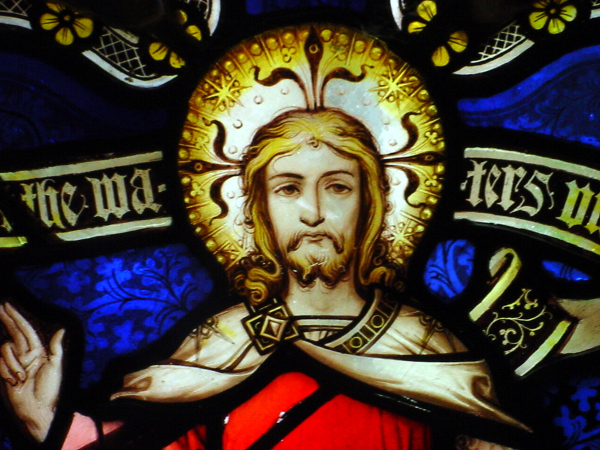Dutch ‘Church Porn’ Causes Furor but Breaks No Laws
 TILBURG, Netherlands – Despite sharing a suffix in common, I’m sure there are many differences between Tilburg, Netherlands and Gatlinburg, Tennessee. Among these many differences: I’m confident if I were to shoot a porn movie inside a church in Gatlinburg, I’d find myself in some pretty deep shit as a result.
TILBURG, Netherlands – Despite sharing a suffix in common, I’m sure there are many differences between Tilburg, Netherlands and Gatlinburg, Tennessee. Among these many differences: I’m confident if I were to shoot a porn movie inside a church in Gatlinburg, I’d find myself in some pretty deep shit as a result.
Not so in Tilburg, where prosecutors have decided a video shot in a church and later published on the website of Dutch porn performer Kim Holland didn’t violate any laws. (It should be noted Holland didn’t shoot the video herself, apologized and removed it from her website after the public furor that arose when it was published.)
As there’s no longer a law against blasphemy on the books in the Netherlands, prosecutors concluded there was no crime with which the video’s producers could be charged.
“We find it offensive and disrespectful, but we had a good look at the legal code and do not really see a criminal offence,” said a spokesperson for the prosecutor’s office. “Blasphemy is not a crime and there’s no question here of anyone trespassing.”
Unsurprisingly, this explanation isn’t sitting too well with the priests and parishioners at Saint Joseph’s Catholic Church, the house of worship that served as the set for the offending film.
“The justice ministry said we should have hung a no-entry sign on the church entrance,” said Harrie de Swart, a senior official at St. Joseph’s. “Then we could prosecute people who do this sort of thing. But it’s absurd to stick that sort of sign on the door of a church.”
Equally foreseeable was the response of Friar Jan van Noorwegen, a priest at St. Joseph’s, who wondered aloud what sort of precedent the prosecutor’s decision has set.
“Just imagine, if it happens now in a church, a town hall or restaurant, clearly it can happen anywhere,” van Noorwegen said.
In addition to being flummoxed by the decision, de Swart is skeptical the prosecutors are correct in their legal analysis, arguing that if nothing else, the filmmakers must have been guilty of trespassing of some kind, given they accessed parts of the church that were closed off at the time.
“First of all, making such a video is contrary to the church owner’s intention with the building,” de Swart said. “In the second place, the creators were able to just enter the building, but to get to the confessional chair they had to climb over a fence.”
While St. Joseph’s still has the option of filing a civil suit against the video’s producers, de Swart indicated he’s recommending against that course of action.
“There’s already been enough commotion and it led to nothing,” he said.
It’s hard to imagine a similar outcome here, were porn producers to let themselves into a Gatlinburg church — or a church in any other American “burg,” for that matter.
While the language of every state’s legal definition of obscenity largely mirrors that of the Miller Test, local community standards inform more than just a trier of fact’s verdict as to whether material is obscene; they also largely dictate whether obscenity charges are brought against defendants in the first place.
If the prosecutorial history of the American South with respect to obscenity shows nothing else, it’s that many southern jurisdictions will go to great lengths to apply state obscenity laws, even in cases that might strike a lot of us as having nothing to do with porn, let alone materials that conceivably could constitute illegal obscenity.
Take the Georgia obscenity case filed against comic book store owner Gordon Lee, for example. If there was something legally obscene about the drawing at the center of that absurd prosecution, then the entire adult industry is in big, big trouble to the extent it distributes anything in the Peach State.
By the same token, the day a comic book distributor gets prosecuted in the Netherlands for distributing Nick Bertozzi’s The Salon, my sense is we’ll hear a forecast calling for a 100-percent chance of snow in Hel.
Image © benmizen.













